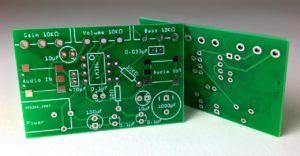Introduction:
The world of wireless communication has witnessed a revolutionary transformation with the advent of Low Power Bluetooth (Bluetooth Low Energy or BLE). BLE is a cutting-edge technology that enables power-efficient, short-range communication, making it the perfect solution for battery-operated devices and Internet of Things (IoT) applications. In this blog, we will explore the advantages of Low Power Bluetooth, its diverse applications, and the major IC manufacturers shaping this wireless ecosystem.
Advantages of Low Power Bluetooth:
- Energy Efficiency:
The primary advantage of Low Power Bluetooth lies in its exceptional energy efficiency. BLE is designed to minimize power consumption, extending the battery life of connected devices, which is particularly crucial for wearables and IoT applications.
- Short Range Communication
BLE operates in the 2.4 GHz ISM band and offers a short communication range. This ensures minimal interference and heightened security, as the communication is limited to nearby devices.
- Quick Data Transmission:
BLE enables fast data transmission for brief interactions. This is ideal for IoT sensor data, short commands, and push notifications, providing seamless and efficient communication between devices.
- Scalability and Flexibility:
BLE supports a wide range of device types, from simple sensors to more complex devices, making it highly scalable and adaptable to various applications.
- Interoperability:
BLE is a standardized wireless communication protocol, ensuring compatibility and seamless interoperability between different devices from various manufacturers.
Applications of Low Power Bluetooth:
- Wearables and Fitness Trackers:
BLE has revolutionized the wearables market by powering smartwatches, fitness bands, and health monitoring devices. These devices can efficiently transmit data to smartphones or other gateways for further analysis and user interaction.
- Home Automation:
BLE plays a pivotal role in smart home systems, enabling seamless communication between smart bulbs, smart locks, thermostats, and other smart devices. Homeowners can remotely control and monitor their connected devices with ease.
- Health Monitoring Devices:
In the healthcare industry, BLE is extensively used in medical devices like blood glucose monitors, heart rate monitors, and blood pressure monitors. The data collected can be transmitted to smartphones or healthcare providers for real-time monitoring and analysis.
- Asset Tracking and Logistics:
BLE is instrumental in asset tracking and logistics applications, where it enables efficient tracking and monitoring of assets, inventory, and goods in warehouses and supply chain management.
- IoT Sensors:
The proliferation of IoT devices is powered by BLE technology. Various IoT sensors, such as temperature sensors, humidity sensors, and motion detectors, utilize BLE to transmit data to IoT gateways for further processing and analysis.
Major IC Manufacturers for Low Power Bluetooth:
Several industry-leading IC manufacturers provide BLE solutions to cater to diverse application requirements. Here are some major players:
- Nordic Semiconductor:
Nordic Semiconductor is renowned for its nRF series of BLE SoCs (System-on-Chip) that offer power-efficient and feature-rich solutions for wearables, IoT devices, and other wireless applications.
- Texas Instruments:
Texas Instruments provides a wide range of Bluetooth Low Energy SoCs and modules suitable for industrial, medical, and consumer electronics applications.
- Silicon Labs:
Silicon Labs offers BLE solutions, including SoCs, modules, and development kits, for various IoT and wireless applications.
- Dialog Semiconductor:
Dialog Semiconductor specializes in BLE solutions with low power consumption, catering to wearable devices and other IoT applications.
- STMicroelectronics:
STMicroelectronics provides BLE SoCs and modules designed for diverse applications, including automotive and industrial.
Conclusion:
Low Power Bluetooth (BLE) has emerged as a game-changer in the realm of wireless communication, revolutionizing diverse industries with its energy efficiency, short-range communication, and quick data transmission capabilities. As IoT continues to flourish, BLE will play an even more pivotal role in connecting the world and enabling a seamless exchange of data. With major IC manufacturers continuously innovating and advancing BLE technology, we can expect an exciting future filled with new possibilities and applications.
Content drafted by Mr.Sai Amar, Firmware Developer, RioSH Technologies.


